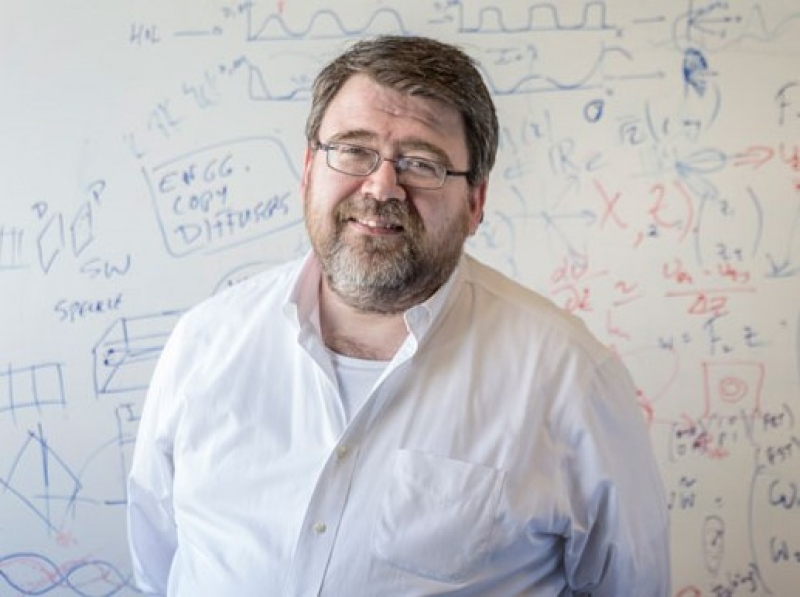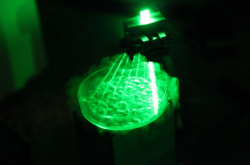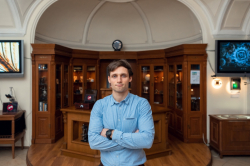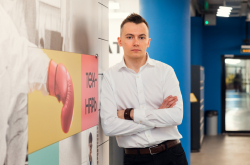On any other occasion, our conversation with Professor Sheridan would have taken place at ITMO University a short time before his first lecture. But the pandemic has brought everything online – the lectures and the interview alike.
It’s noon in Dublin when our Zoom call starts. John T. Sheridan, the author of more than 450 Scopus-indexed papers with an h-index of 44, sits behind a desk at home, wearing a white shirt and black braces. He greets me warmly and our conversation thus begins.
“There is a great hunger for innovation in the data storage industry”
For starters, can you tell us a bit about the course you’ll be conducting for students at ITMO University?
I’m an optical engineer and my work concerns holography and optical signals processing. I will be talking, first and foremost, about the modeling of three-dimensional holograms and the physics of diffraction scattering in volume holography.
The second half of the course will concern media that may be used to record holograms. In particular I’ll be talking about photosensitive self-processing plastics. When you replay the recording with light you reproduce a 3D field. From that moment on, you’ve got a component that can be used to store data or create passive optical components, such as lenses. There are plenty of applications.
Essentially, my course will be about two things: how to make holograms and how to “replay” them later on.
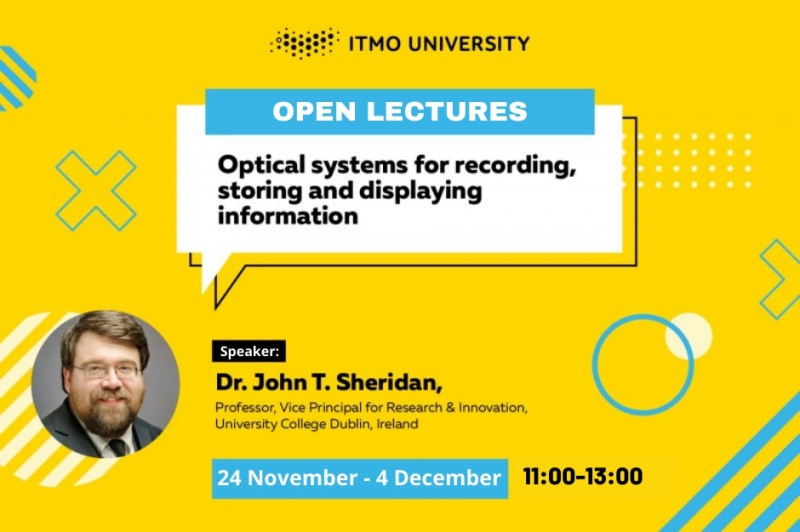
All scientific fields have their own hot topics and a certain “frontier” where the discoveries are made. Where is that frontier in holography?
Holography has been developing since the 1960s, and the first-ever holograms were made back in the 1940s. The potential applications are diverse, but there’s one thing that is fundamental when talking about the practical use of holograms – the availability of suitable recording materials of good quality. It took a long time to make them. For instance, people used to employ silver-halide materials, which were also used in photography. In the 1990s, we even used dichromated gelatin. But most of these materials were not self-processing. So once you recorded the hologram, you’d have to take the exposed plate to a darkroom, and process it if you wanted to be sure it was preserved.
Between then 90s and the 00s, researchers developed self-processing plates in which holograms are created on their own under the influence of light. It meant that the holographic image you recorded would be pretty much identical to what you’ll be reproducing later on. Oftentimes, processing the material led to changes in the quality of the hologram. Now, we are in the process of taking a massive leap from lab-produced and used materials to ones that can be produced commercially.
The issue is that most silver-bearing plates that were used before were produced by major manufacturers like Kodak. But these days there are still only a few companies that can mass produce self-processing photographic materials. People don’t have access to the technology; there’s only one or two companies out there. So that’s the frontier – figuring out how to use this technology sensibly and rationally and to apply these new self-processing commercial materials.
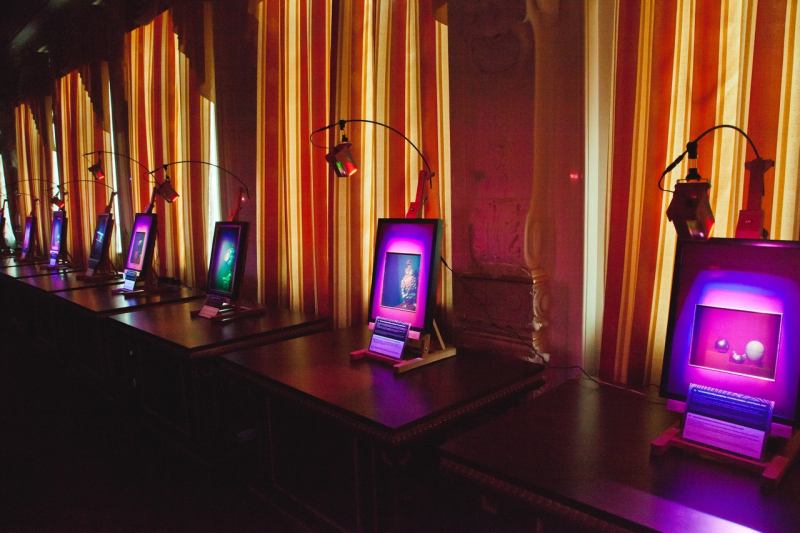
Can you tell us more about the prospective applications of these new materials – and holography in general?
For one, there is currently talk of using holography to improve the headlights of automobiles. There’s also a lot of interest in developing smart glasses that would display computer-generated data. But for that, you’d need to develop photonic integrated circuits that could function with a low-power energy source and project visual data into the human eye. One of the ways such circuits could be made is by using holographic elements, which are thin layers, but still capable of directing light – an important quality for projection.
Another goal is holographic data storage. Such ideas have been explored in the past with researchers attempting to prove the functional capabilities of their inventions, but industrial production and testing are two altogether different things. The concept of holographic data storage is not new, but today we’ve got materials that make it that much more realistic. We can speak with confidence about the prospects of massive data storage units that would use the volume of the material to record data. We can aim to store data within volumes; in other words, so the recording would occur in three dimensions, not two.

When I talk about this, I always remind my students that the first hard drive I owned was as large as a brick, highly expensive, and only held 10 MB of data. Today, I can buy a thumb drive that would hold a terabyte. This evolution took place over just 30 years, so naturally there is a great hunger for innovation in the data storage industry.
There are also applications related to condensers, which improve the efficiency of solar power cells, and many others.
How will your course be structured?
There will be some 10 to 12 lectures in the course, and I will deliver about 7 or 8 of these. There will also be lab classes focused on recording and using holograms. These classes will be conducted by ITMO staff with whom I’ll be in touch.
“Whenever you assess a PhD student, you learn something new”
Professor Sheridan pauses for a sip of water. His mug is inscribed with elven runes like those on the One Ring from Lord of the Rings. He shows it off with pride. Then, we continue.
So how did this course originate?
I’m a member of several international scientific societies such as SPIE and OSA. I regularly meet many people from around the world and I’ve formed many friendships in this way. It’s important to me because I live in a small country and work at a university where only a few people work in optics. There aren’t that many at the university, or in my country [Ireland] who would know what I’m talking about (laughs).
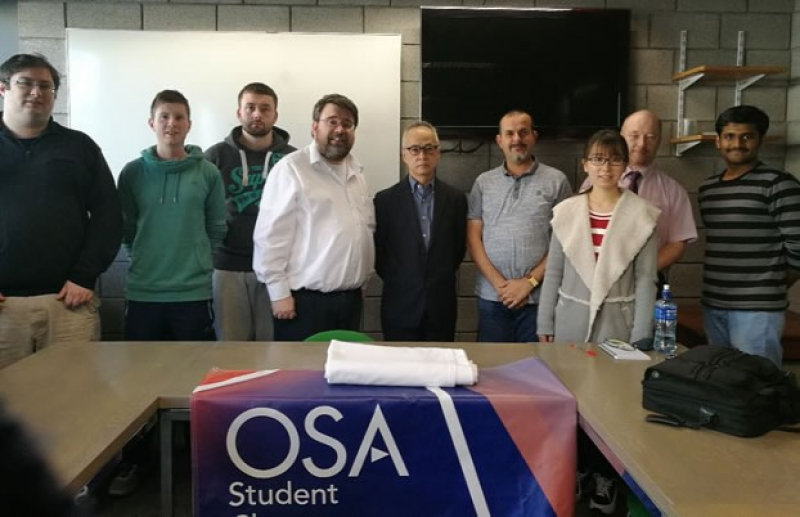
I met a few people from your university at a conference and they were very kind to me and could understand my terrible English. I was very grateful to them for that (laughs). We started talking about our work and they invited me to deliver a lecture series at ITMO. I was very excited. Yuri Denisyuk is one of the founding fathers of holography, so I was delighted to speak to people from his home university where he did so much of his research.
I was hoping to visit St. Petersburg myself, too; my wife has been there and said it was a beautiful city. But COVID-19 caused a change of plans. But I still can’t wait to start my classes there; I’ve asked my friends at ITMO if my English is good enough for the poor students to understand me, and they said it is. We’ll see.
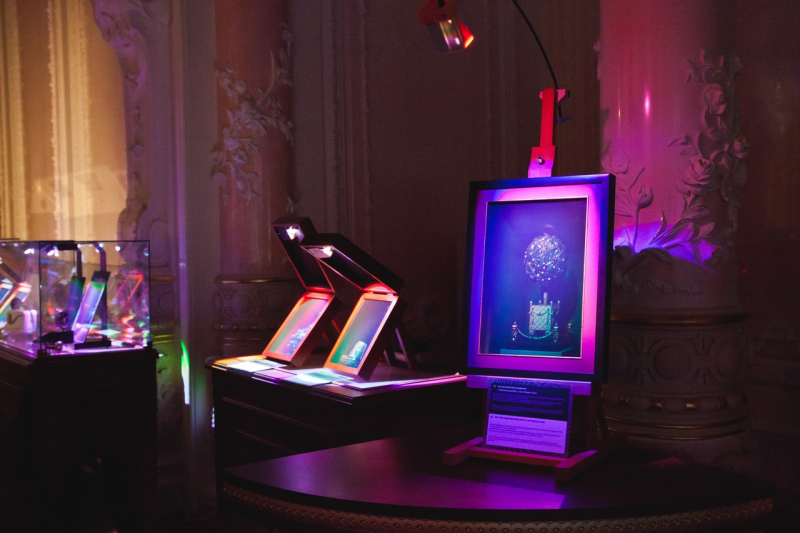
One other connection you’ve got with ITMO is that you’re the thesis reviewer of one of our PhD students. What drew you to that offer?
My colleagues from ITMO, who know I’ve supervised a great number of PhD students here in Ireland and that I’ve assessed plenty of students from all over the world, invited me to be an external expert at your student’s defense. I was flattered by the offer. I had previously met a few students from ITMO, who asked me interesting questions and shared some insights; I’ve tried to help with advice.
I’ve read many articles by researchers from ITMO. In addition to holography, I also study optical signal processing, so I’m familiar with many of these works and aware of the university’s reputation and its spirit. I was glad to have been asked; I also enjoy learning new things, and whenever you assess a PhD student, you learn something new.
“Most students love it when you’re honest”
You’ve got an impressive list of publications and a high h-index. Many scientists who can boast such a record often strive to work at one of the top universities, usually in the US. Why do you prefer to work in Ireland?
You know, I’m a very lucky guy. I had two research advisors: one from Hungary and one from England/Australia. The former, Prof. Laszlo Solymar, has written some 14 books and still works even though he’s 90 years old. I once wrote to him, saying: “Please, stop working so hard; I don’t have a chance of catching up with you.” My English/Australian advisor, Colin Sheppard, has written twice as many (and much better) articles than I have. So it might just seem like I’ve got many publications, but there are those who have done a lot more. I have had very good professional examples.
As for your question – sure, I could stay in America; I love that country and I love Americans, but I like Europe and I feel great here. I’m also a farmer’s son. In Russia, you have the word kulturni (культурный, “cultured; high-brow” – Ed.) – well I’m not kulturni. I’m a country person and I feel good here in my home country. I love being with my family. Here in Ireland, I’m like a fish in water. And I love that. But I’ve got plenty of friends abroad and I enjoy talking to them and visiting them.
In speaking to my colleagues, I’ve noticed that one’s participation in the global academic community is based on the institutions they’ve worked at. How do you manage to live a comfortable life in Ireland while also actively collaborating with researchers around the world?
I love talking to people and I also love my job, so I do my best to maintain connections and attend conferences. I’m actually lucky enough to have plenty of contacts around the world. Of course, some people aren’t as pleasant as others, but I like communicating with people and learning from them. Perhaps it’s a part of our Irish culture – you respect people, find them interesting, and feel like talking to them. And most of them return the sentiment, eventually you learn that they’ve got a wife and a child, and what sort of work they do at the lab. You see, it’s not only about work or benefit; it’s just interesting.
I generally enjoy trying and learning new things. For instance, I’ve launched several companies. I’m no businessman and wouldn’t have been able to really build them up and make them successful, but I’ve launched them and I learned a lot doing that.
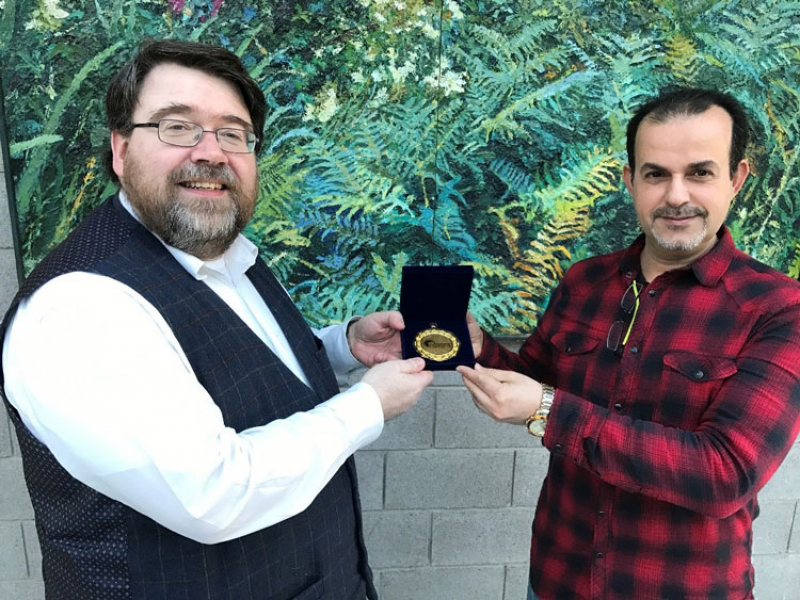
Another question – you seem like a quite relaxed person...
At this point, Professor Sheridan stops me and starts speaking in a slightly different voice – much less ironic and jolly than it was throughout the interview.
Truth be told, I don’t think so. I drive my wife mad and I drive my students mad. I love to chat, but I’m very serious about my work. I believe that it’s important to let people know what you want and expect from them.
I tell my students to treat class work like regular work. I try to tell them what it is like in industry so, for example, I tell them if they get an “excellent”, the company will hold onto them and promote them. If they get a “good”, the company will keep them on, but don’t promote them. If they get a “satisfactory,” then their boss will have a serious conversation with them. If they get an “unsatisfactory,” that means they will be fired. It’s all very simple. The most important thing is interest. To me, engineering is a profession where you have to be professional. It’s nice to be kind to people and care for them, but it’s also a business.
I genuinely like people and I can excuse almost anything. There are many ways to do things, many ways to grow. People make mistakes, people get sick, but they must work. Everything else doesn’t matter, but it’s important that you labor. I’m open to students, but it’s not good if they’re lazy and unwilling to work for it. But, you know, most students really appreciate it when you’re honest with them.
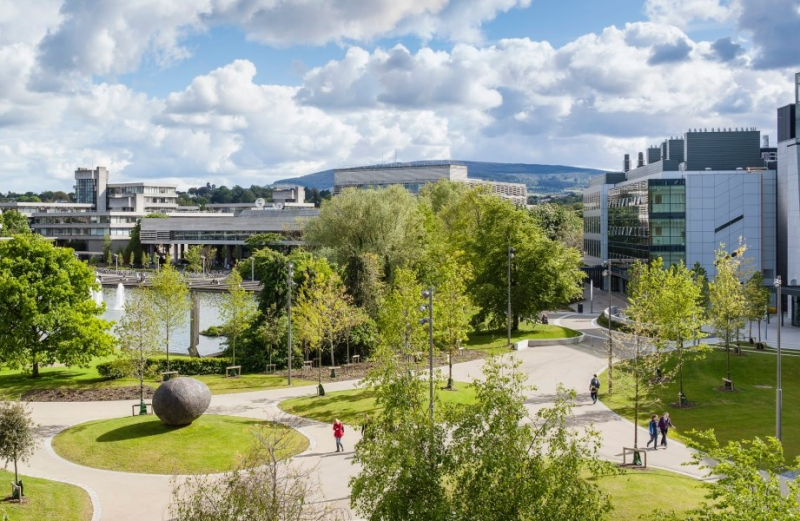
That’s true. But here’s my question: many scientists say that today’s academic world is like an endurance race where you’ve got a strict schedule for how many articles you should publish, when to publish them, and in which journals. Despite your impressive record, it doesn’t seem like you treat it as a competition, do you?
Well, first of all, I began my work around 35 years ago. And these things have gotten stricter since. Besides, it’s just very important to love what you do. If that’s true, then sometimes you’ll profit off of it, sometimes not, but it won’t matter so much.
And as I’ve already said, I’m a lucky person. I have a great family that loves me and a wonderful wife who supports me. That’s very important. I also work a lot. It’s my hobby. Some people play golf or sail yachts, but I work. And I’m also not too dumb, though, of course, my wife doesn’t think so most of the time (laughs). But when I return to work, I sometimes get some interesting ideas (at least interesting for me).
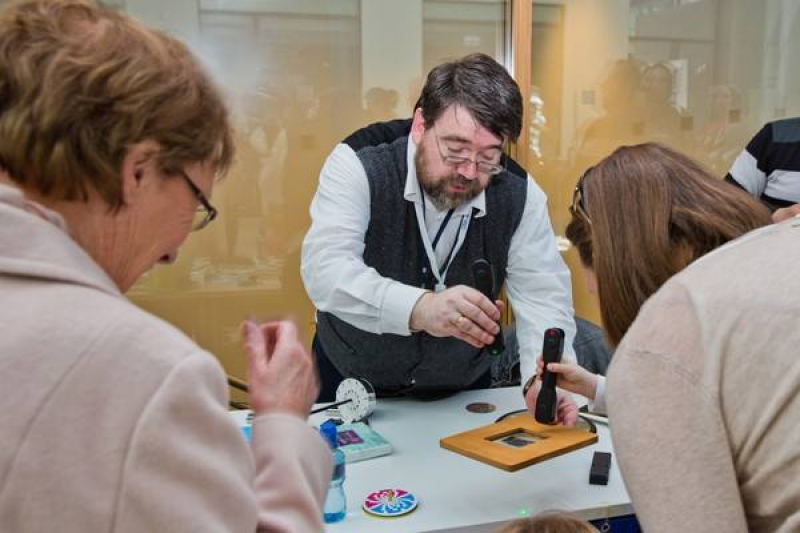
When I meet my PhD students, I ask them right away what they want to do in life: work in the industry or in academia. If they say that they want to become professors, I tell them not to. Don’t try to become a professor unless you really-really want to. A professor’s life is a strange one. If you do want to be one, write articles. I try to structure my work so that each article is the next chapter of my future thesis. I also advise students to speak at conferences.
Many students are actually creative and full of ideas, but that’s not enough. You must also do something! Everyone’s got ideas, but you need to turn them into something: an article, a result, an experiment. And I always try to maintain a pleasant atmosphere at the lab. Happy people work more and work harder.
We engineers don’t work for the Nobel Prize; we work to create good science that makes people’s lives easier. I’ve written a lot of articles and I never knew in advance if they would be liked or not. But I wrote most of them because I found the subject interesting. Sometimes I applied little effort and yet the article was successful and read by a lot of people; when I say a lot, I mean a few hundred (laughs). And sometimes I’d spend years on some topic – not every hour of every day, but coming back to it again and again. And once I’d published my findings, nobody cared. It was disappointing, but now I’m in a position where I don’t need to worry about such things.
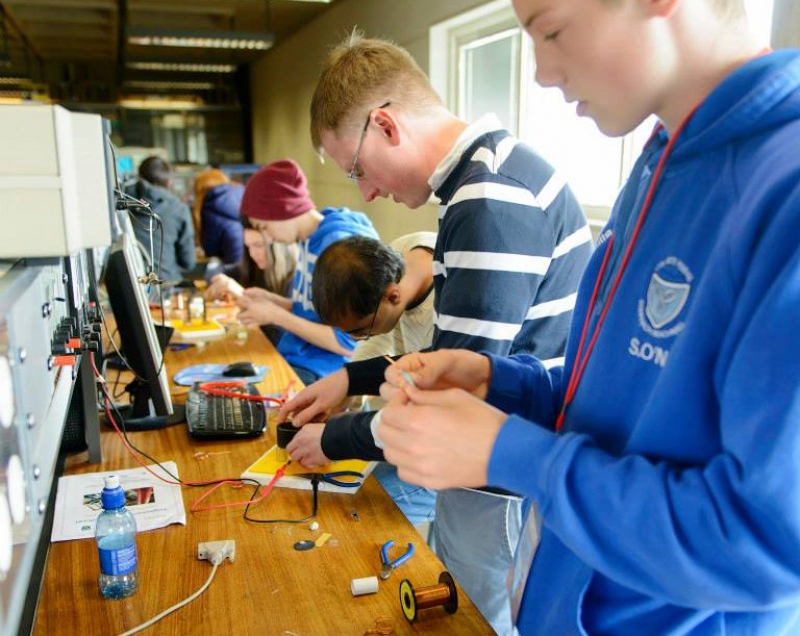
Some people are just lucky to be in the right place at the right time with the right skills. Some end up in the wrong place at the wrong time. But what I can say is that the harder you work, the luckier you’ll be.
At this point it’s time for us to wrap up the interview; but the professor says he’s yet to mention one more thing that’s important to him and then continues.
There is one more thing you must remember. Communication is very important. If you’ve written the best article in the world, but can’t communicate it well, then nobody will ever find out about it. And if you write something, bring it to a professor, and they don’t understand it, they’ll have two options to choose from: either they’re an idiot or you are. I often ask my students: “Which option do you think they’ll pick?” Communication is very important and it’s not something we think about when we start. We’re too deeply immersed in physics, mathematics, and engineering.
On the whole, I’m disappointed with people who think that one’s success depends on how many articles they have. I know many who haven’t written almost anything, but are truly successful. And anyway, success is a very subjective thing. If you have a family and a home – you’re successful. If you’ve raised your children – you’re very successful, too. I love my job, but I love my wife and my son even more.
